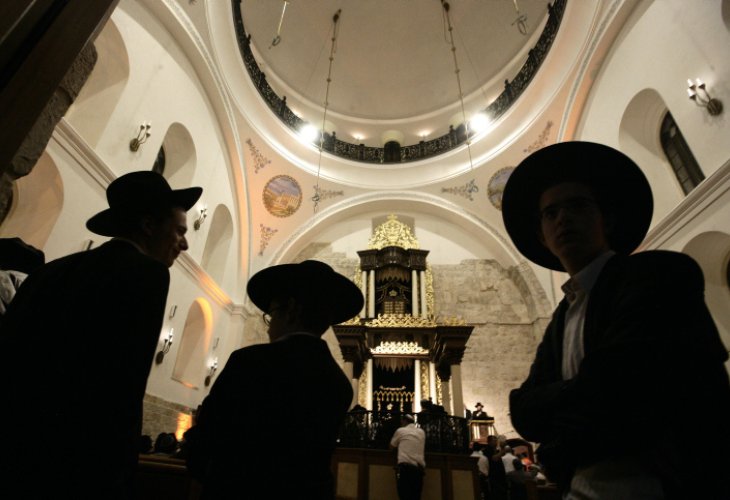The Woman Who Halted the Torah Reading: A Captivating Synagogue Tale
As the cantor brings out the Torah scroll and the congregation accompanies him to the bimah, an unexpected dramatic moment unfolds when an unknown woman interrupts: "I won't let you read the Torah!"
 (Photo: Abir Sultan / Flash 90)
(Photo: Abir Sultan / Flash 90)The year was 1905. At the Hurva Synagogue, during Shabbat morning prayers, the cantor brought out the Torah scroll as the congregation followed him to the bimah. Suddenly, a woman entered the synagogue. Most of those present had no idea who she was. She stepped up to the bimah, tapped it, and boldly declared, "I won't let you read the Torah!"
Who was this woman? A reformist? A missionary? A disguised Turkish police officer?
Quite the contrary. She was a respectable widow from Jerusalem's Jewish community, wronged by a prominent and influential man who had rented her a small room. The widow approached a certain sage, but he avoided helping her, fearing the powerful man's connections to government officials. She reached out to another sage, but he pretended not to understand her plight. A longstanding tradition in Israel allowed that if someone was wronged and had no one to help them, they could interrupt the Torah reading. So she did just that. Right there, before the reading began, the rabbi gathered two other judges with him. They listened intently to her concerns and only after promising to address her issue the following Sunday did she agree to step aside from the bimah.
The practice of halting the Torah reading is documented as far back as seven hundred years ago in the customs book of the Cologne community in Germany. There, it's recounted: "In Cologne, a man complained on the Shabbat when Parashat Emor should have been read to the priests and delayed services and Torah reading the whole day. The following Shabbat, Rabbi Eliezer son of Rabbi Shimon of blessed memory, instructed to begin with Parashat Emor to the priests and also read from Behar Sinai as it was meant for that Shabbat." This shows that the man effectively prevented the Torah reading entirely since his complaint was unresolved, which according to Jewish law is permissible, as causing injustice to a vulnerable person is considered more serious than missing the Torah reading!
The Rema in Orach Chaim, section 54, mentions a similar custom: Anyone who has a grievance because of an injustice can stand after the Yishtabach blessing and before the Yotzer blessing to voice their protest and delay the cantor until addressed, permitted even though one should not talk after Yishtabach, as it is for a mitzvah (and the Rema stipulates that after the start of Kriyat Shema blessings one may not interrupt even for a mitzvah).
Customs like these varied across different communities, sometimes with restrictions. Some communities ruled that interrupting Torah reading on Shabbat was only allowed if the person had already tried during a weekday unsuccessfully. Others abolished the practice entirely. Today, it's not commonly accepted, yet it has roots in Jewish law and ancient traditions.

